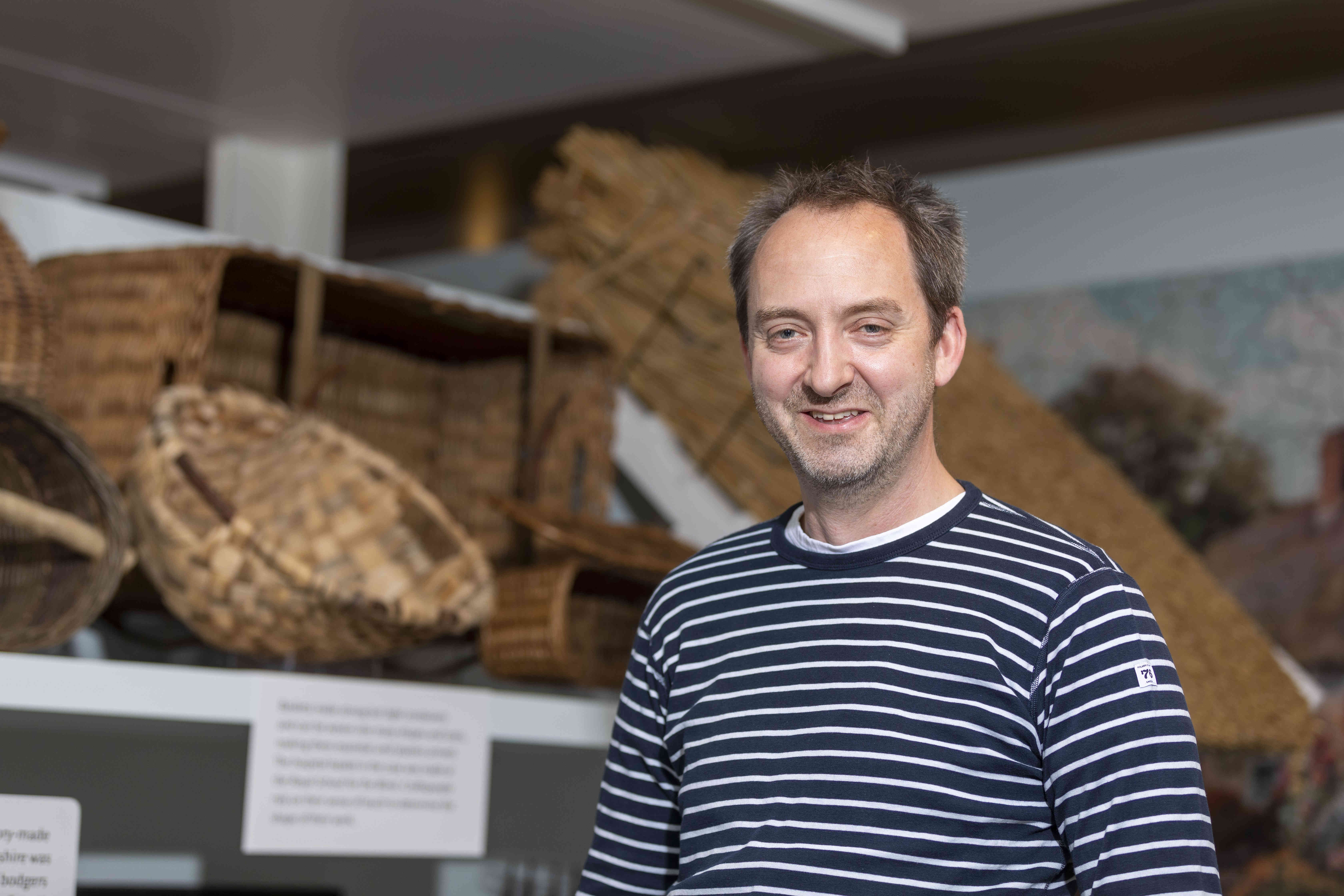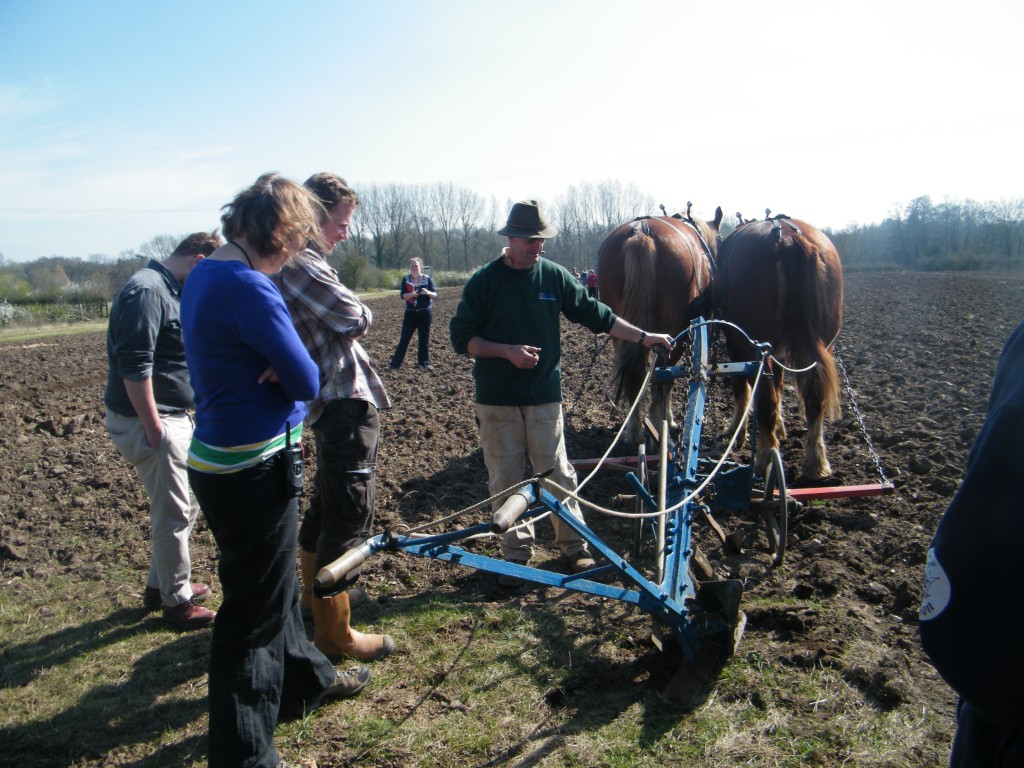The Rural Museums Network is run by a dedicated committee of volunteers who support members, organise events and initiate projects. The committee are always keen to ensure that they represent the network as a whole – in terms of the types of museums and individuals involved, the geographical spread and the various roles we have within our organisations. Want to know more? Dr Ollie Douglas from the Museum of English Rural Life shares his experience of being drawn into the fold:
Since the start of my museums career, I’ve had the chance to serve on the committees of two different Specialist Subject Networks (SSN) – the Museum Ethnographers’ Group (MEG) and the Rural Museums Network (RMN) – as well as other sector-related organisations. In these contexts, I have met and worked alongside many talented and inspiring people. I have watched as older ways of doing things have yielded to newer ways. I have seen generous colleagues step aside to make way for different skillsets and voices. I have seen the sector and these SSNs evolve and adapt to meet changing circumstances and challenges facing the arts and heritage world.
You don’t have to hunt far for articles and commentaries that speak to the benefits of serving a term (or in some cases several terms!) on an SSN committee. Over the years I’ve read numerous positive statements about career development and continuing professional development. Many cite the enormous value of trustee experience, which stands loads of our peers in great stead for future roles on the advisory boards of museum consortia, charitable trusts, or other heritage organisations. True as these excellent testimonials are, I didn’t seek out experiences of trusteeship or committee membership for these reasons. Truth be told, I was herded rather unwittingly into SSN work by well-meaning mentors who were keen for me to connect with others. I have been lucky enough to have the support of my employers behind me. But if your managers are worried about the commitment, it is worth noting that I have never been asked to give more time or energy than I could afford, and the museums have always benefited far more than the cost of my participation.
For my own part, I agreed to put myself forward not for CV points and future opportunities but because I was tempted to explore fields unfamiliar and pastures new. In other words, it was the offer of fresh perspectives that drew me into the fold. The excuse to sit with peers and examine the landscape of our shared corner of the heritage world. The chance to absorb and respond to some of their passion, skill, and expertise. Here was an opportunity to compare my small plot with best practice from other places and roles. And perhaps more than all of this, this was a space in which I could start to shape the future of the sector.
Sitting back from my experiences I can reflect on the skills and knowledge I’ve gleaned. I struggle to recall the number of places I’ve been lucky enough to visit but there have been many opportunities to visit other museums and to see behind the scenes. I can at least remember each and every one of the amazing people I’ve worked alongside, and they have been numerous and their collective expertise and support has been an unimaginable bonus. In hindsight, I can also now recognise lots of other outcomes and benefits. Serving on the MEG Committee opened my eyes to the ways in which these organisations work and gave me the chance to shape and deliver a major conference event, something I’ve done multiple times since. The RMN Committee, meanwhile, has been a mainstay throughout my career and has challenged and honed my professional practice and specialist knowledge at every turn. Together these SSN roles have provided the experience necessary for me to feel confident in taking on leadership of an ICOM-Affiliated Committee – the International Association of Agricultural Museums – operating on a global stage, and to feel capable and confident in convening and organising an international Congress.
When it comes to my part on the Committee of the RMN, I must confess that I look forward (with a combination of trepidation and excitement) to a time when I find myself unfamiliar with the latest jargon, unable to contribute quite so effectively, and ready to hand over to someone else. I’m not sure if anyone is putting me out to pasture quite yet but I won’t mind when they do. I will be happy in the knowledge that I’ve had an enjoyable and creative hand in shaping the RMN and in making meaningful change across the sector. I joined in the hope that I’d help improve our practice and shift the conversation in productive ways. However, I have learnt that these committees are only as good as their members and, like all other facets of museum work, they benefit from a diverse and inclusive range of talents, and they thrive on change. So, whether I stay on the RMN Committee or not, I’d like to see a wider range of rural museum skills and roles represented, not just curators and collections managers. We need a committee that meets complex intersectional challenges and reflects the institutional variety that we see across our Network. Where are the learning and education specialists, community engagement and interpretation managers, conservators, cataloguers, marketing and digital staff, and front of house colleagues whose collective efforts keep our rural museums thriving and active? I’d like to be part of an organisation shaped by the leadership and voices of people from the full scope of the Network’s geographic reach, and from all quarters of our complex but exciting sector.
So, this is me asking you to think about putting yourself forward and me asking you to share your ideas, skills, and abilities so the rest of us can reap the rewards of your expertise.
If this has inspired you to play a more active role in the Rural Museums Network and to help shape it for the future, do get in touch and go the whole hog!



